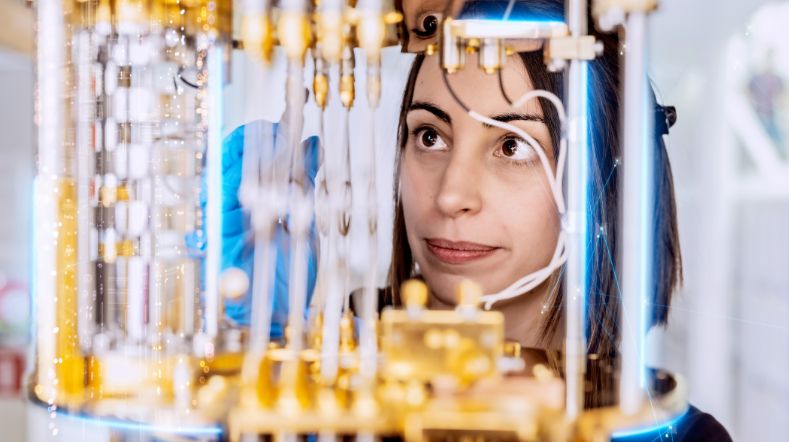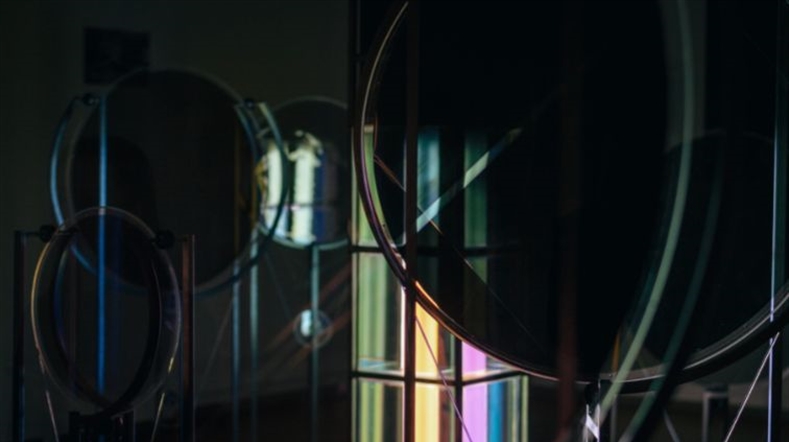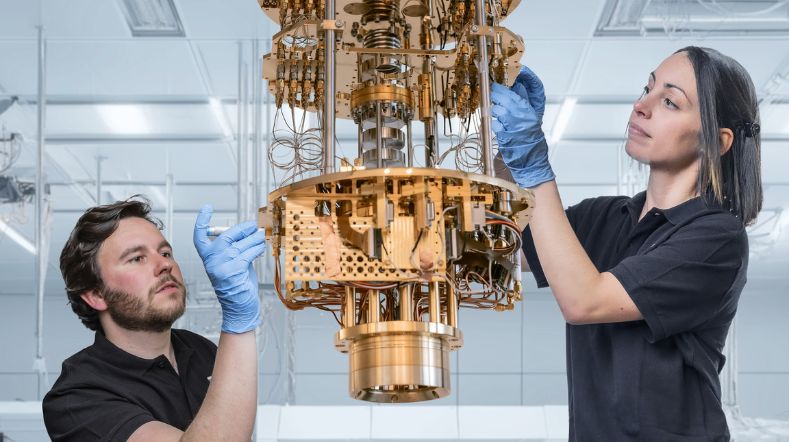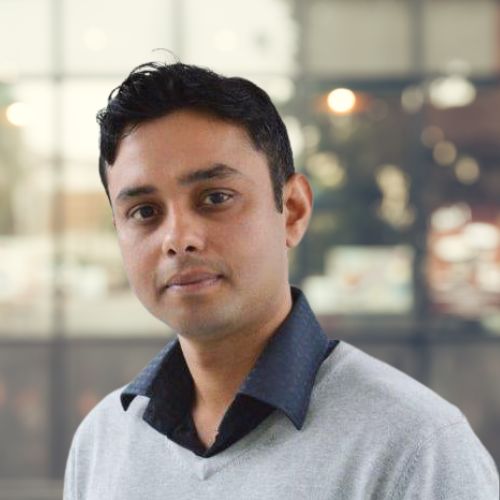
TNO Starts 7-year Quantum Testing and Experimentation Program
TNO has been at the forefront of developments in quantum technology for years. Our innovative QITT Lab is just one of the many ways we are contributing to advancing this revolutionary technology. Now, for the first time, TNO has been selected to lead a federated network of 11 European Research and Technology Organisations (RTOs) and National Metrology Institutes (NMIs) in an ambitious new cooperation funded by the European Commission (EC). The objective? Drive the entire quantum technology sector forward through testing and experimentation.
Responding to the call
The EC’s 10-year, €1 billion Quantum Flagship initiative aims to help advance the development of quantum technologies. Under the Quantum Flagship, the EC sent out a call for Framework Partnership Agreements (FPAs) that help create long-term, open, supportive and sustainable network of experimental and testing facilities in Europe.
‘When we heard about the call, we knew this was a unique opportunity to expand our reach and help the entire quantum tech industry in Europe,’ says Gabriele Bulgarini, Program Manager of Quantum Technologies at TNO. In total, eight RTOs and three NMIs joined forces to answer the ECs call. And in September 2022, they signed a Framework Agreement with the EC to start the project.
Qu-Test is an expansion of the value that RTOs provide. ‘RTOs, by their nature, are the bridge between academic exploration and industry application,’ Gabriele explains. ‘Now, we’ve got 11 expert organisations combining their strengths into a single network. That will accelerate progress and establish Europe as a leader in this strategic industrial sector, and enable devices to move more swiftly through development and into industrial application.’
Qu-Test will support European innovation
The newly formed federated network, Qu-Test, brings together the expertise and facilities of all of the partners into a unified network. This will support the creation of a trusted supply chain through which quantum devices and systems can be independently calibrated, tested and evaluated. Qu-Test will be a one-stop shop, open to all European organisations working on quantum technology. It will provide unprecedented access to the top institutes in the field.
The network also aims to contribute to the development of technology standards that the industry can use moving forward. ‘With an emerging technology like this, there are not yet any unified parameters and measurement protocols for characterising and calibrating quantum devices,’ Gabriele explains. ‘Qu-Test will take the first step towards establishing common methodologies, so that future developments can be compared against each other accurately. We need standards so that we can compare apples to apples.’
Complementary and cooperative partnership
Each partner in the network will apply its own unique expertise, facilities and knowledge to test and validate quantum innovations. They will complement each other to address the testing and experimentation challenge from different angles. Furthermore, when one lab validates a device or component, it can be sent to another partner for cross-validation. This will create a robust and complete support system for SMEs who are developing devices and components.
The Qu-Test partners have organised into three testbeds, based on their expertise. The Quantum Computing Testbed partners will measure, characterise, and validate cryogenic quantum devices, cryogenic qubits (such as superconducting and semiconducting qubits), photonics qubits and ion traps. The Quantum Communication Testbed will focus initially on devices for Quantum Key Distribution (QKD) and Quantum Random Number Generation (QRNG), the cornerstones for highly secure quantum communication. And the Quantum Sensing Testbed will benchmark sensing and metrology instruments from European manufacturers and use a suite of quantum sensors to validate relevant use cases for industry.

Our innovative QITT Lab is just one of the many ways we are contributing to advancing this revolutionary technology.
In addition to coordinating the overall network, TNO will contribute to both the Quantum Computing and Quantum Sensing Testbeds. Our work in the QuTech collaboration and the Quantum Inspire platform, as well as in the QLSI Quantum Computing consortium, among other notable projects and partnerships, have established TNO as a strong player in the field.
An open call for testing
The first project under the FPA is expected to start in early 2023. But Gabriele is already calling on all companies interested in testing and validating their technologies to get in touch.
Although we already have a number of testing and validation projects in the pipeline, we encourage any and all European SMEs working on this technology to contact us to discuss how Qu-Test can help.
Further expansion in Europe
Qu-Test is a significant step in the advancement of quantum technology in Europe. Testing capabilities will further be strengthened with initiatives like the European Chips Act, which aims to create a state-of-the-art European chip ecosystem, including design and testing capacity for cutting-edge chips.
Get inspired
Pioneering with a purpose: The Netherlands at the forefront of quantum innovation


Pioneering on the edge of physics: quantum chips tested faster and faster


How TNO’s Ines Corveira Rodrigues shapes tomorrow's quantum world


Art and quantum: student team renders superposition tangible with TNO


TNO expands quantum information technology testing capabilities to support startups


